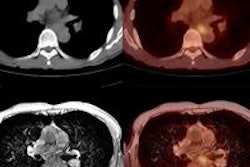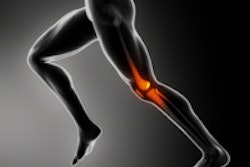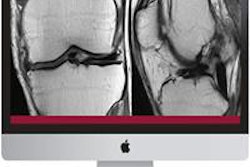Dear AuntMinnie Member,
The American College of Radiology (ACR) has a new CEO, as Dr. William Thorwarth Jr. has taken over the role from longtime chief executive Dr. Harvey Neiman, who is retiring after more than 20 years with the organization. In a new Q&A interview, Associate Editor Kate Madden Yee spoke with Dr. Thorwarth about his priorities for ACR as he steps into his new post.
Dr. Thorwarth sees a major focus of his tenure as supporting the organization's efforts to promote value-based imaging, such as its Imaging 3.0 initiative. Major elements of the campaign include promoting appropriate imaging, patient-centered radiology, and better communication with referring physicians and patients.
He believes his background as an interventional radiologist -- which helped him understand the value of day-to-day interaction with patients -- will be a major asset in this endeavor. Learn more about the ACR's future direction by clicking here, or visit our Imaging Leaders Digital Community at leaders.auntminnie.com.
Cardiac MRI for chest pain
In other news, cardiac MRI could be a better tool than ultrasound or even invasive angiography for diagnosing patients who come to the emergency room with chest pain of unknown origin. That's according to a study presented at last week's German Society of Radiology congress and featured on our AuntMinnieEurope.com sister site.
German researchers used cardiac MRI to examine 125 patients who presented with chest pain, elevated troponin levels, and uncertain catheterization results. Cardiac MRI yielded the correct diagnosis in 90% of the cases, the group found.
As a result of the study, the researchers are now recommending that cardiac MRI be used for all cases of nondescript chest pain that could be a sign of myocardial infarction. Learn more by clicking here, or visit AuntMinnieEurope.com.
Are 3D scans a privacy risk?
Finally, visit our Advanced Visualization Digital Community for an intriguing story on potential privacy risks related to 3D reconstructions of head CT scans.
A research team from the University of Maryland that included Dr. Eliot Siegel wanted to see if patients could be identified from surface reconstructions of CT scans of the maxillofacial sinuses or cerebral vasculature. They asked a group of observers to match nearly 30 3D-rendered images with a set of photographs of actual patients.
The accuracy of the observers varied based on the criteria used -- for example, it dropped if "none of the above" was the correct option. However, the study suggests that data encryption should be used even when protected health information isn't included with scans.
Read more by clicking here, or visit our Advanced Visualization Digital Community at av.auntminnie.com.



.fFmgij6Hin.png?auto=compress%2Cformat&fit=crop&h=100&q=70&w=100)




.fFmgij6Hin.png?auto=compress%2Cformat&fit=crop&h=167&q=70&w=250)











